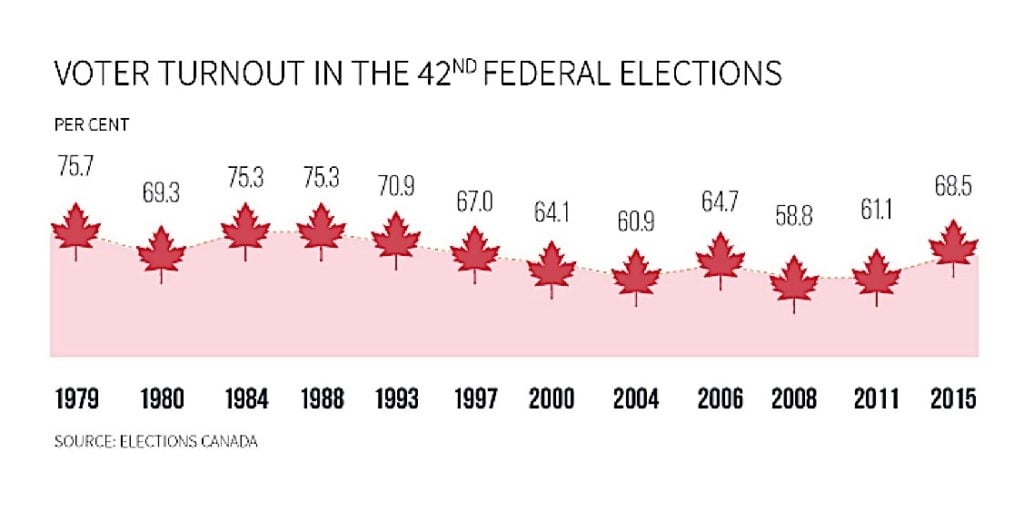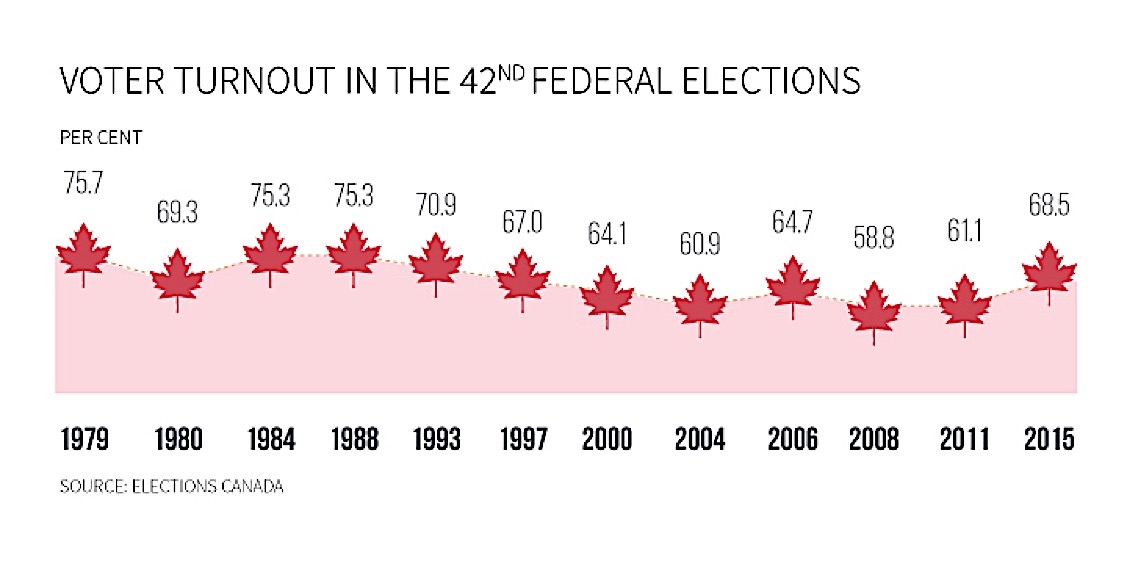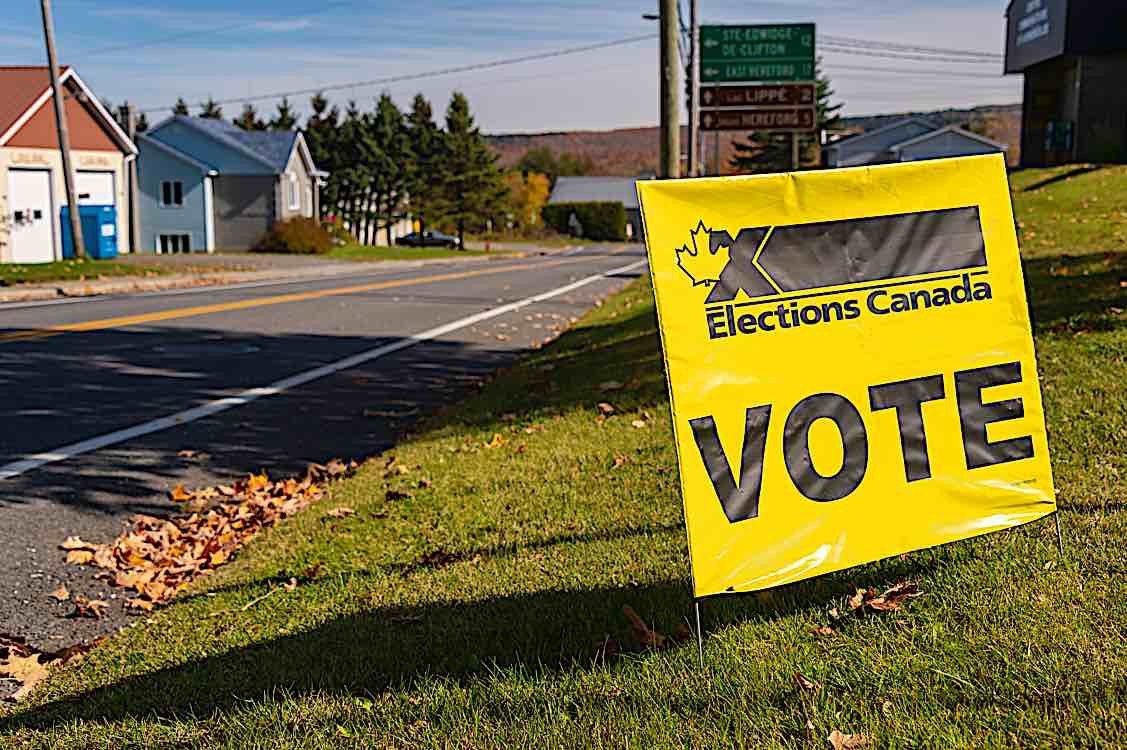
With voter turnout in the last election at 66 percent, we ask: What are the employer obligations for elections?
Voter turnout in the 2019 Federal elections was down to 66 percent. How much of that is due to the inconvenience of “voting day.” On paper, the rules in Canada seem good — employers must be supportive of their employees need to vote. There are some interesting rules to pay attention to, particularly in fields such as logistics, where truck drivers have unique rules.

Prior to the election, Pivotal Solutions sent out a letter outlining the Canadian Rules, per the Canada Election’s Act, which covered everything from “Mandatory Time Off” to “no explicit or implicit interference” to “pay” requirements — reproduced below for handy reference and planning.
HR Planning for the next election
Unless rules change, it is best to get ahead of these obligations and plan your HR resources around the employer’s obligations under the Act. For example, with mandatory time off, organizations with crucial HR roles can use temporary employees to manage the productivity gaps. Good HR planning takes into account not only Elections Canada rules, but also other leave requirements under labour law.
Notice from Pivotal Solutions
Employer Obligations for the Federal Election on October 21, 2019
On October 21, 2019, millions of Canadians will head to the ballot box and cast their vote in the federal election. Per the Canada Elections Act (“Act”) here is an overview of employer obligations on election day:
Mandatory Time Off
Every employee who is qualified to vote in the election is entitled to three consecutive hours off from work for the specific purpose of voting. Qualified voters are defined as Canadian citizens who are 18 years of age and older.

The only exception is for transportation companies whose employees are operating a mean of transportation outside of their respective polling jurisdiction. Such employees are not entitled to time off to vote if doing so would interfere with the transportation service. Transportation companies facing this scenario are strongly advised to make their affected employees aware of this exception under the Act and encourage them to vote in advanced polls if they wish to do so.
- Do you need help planning your HR resources, or managing obligations under Elections Canada or Labour rules? Contact the experts at Pivotal Solutions>>
No Explicit or Implicit Interference
An employer must not attempt to interfere, in any way, with granting time off for voting purposes. This banned behaviour includes (but is not limited to) intimidation or undue influence. Failure to comply with this rule is an offense under the Act.
Scheduling Time Off
In situations where an employee’s schedule allows for three consecutive hours to vote, an employer is not required to give that employee any time off during their work shift.
In situations where an employee’s schedule does not allow for three consecutive hours to vote, an employer must permit the employee to take the required time off work, with full pay.
Full Pay
Employers must provide full pay to employees who are given time off to work. This is defined as the amount of pay that an employee would have otherwise earned if they remained at work. Withholding pay or reducing pay is an offence under the Act.
Employer’s Convenience
Employees who wish to vote are not entitled to choose when they are released from work to do so. The employer has the right to determine whether an employee is released at the beginning, during, or end of their shift.

Poll Closing
When granting employees three consecutive hours of time off to vote, employers must factor in the time that polls close in their respective province. For example, polls in Ontario close at 9:30pm (EDT). If an employee is scheduled to work on election day from 12:00pm to 8:00pm, the latest that he or she must be allowed to leave work and vote is 6:30pm. As noted earlier, the employee would be entitled to full pay for the period between 6:30pm to 8:00pm.
Changing Schedules
The Canada Elections Act does not forbid employers from altering an employee’s schedule (subject to provisions in the employee agreement and/or collective agreement), in order to accommodate the mandatory three consecutive hour leave requirement. For example, if an employee in Ontario typically works from 12:00pm to 8:00pm, an employer may schedule the employee on election day to work from 9:00am to 5:00pm. In this scenario, the employer would not be obliged to provide the employee with any additional compensation, since he or she would have at least three consecutive hours (in this example, 4.5 hours) to cast their vote before the polls close.
With this being said, employers who plan on changing one or more employees’ work schedule specifically due to the federal election, should make sure that any affected employee(s) are given enough notice, and that the change is fair and reasonable. Otherwise, the change could damage the employer-employee relationship in a manner that ultimately proves far more costly in the long run.
Waiving the Right to Vote
Employees are entitled to waive their right to vote, and instead remain at work. While they are not legally obligated to do so, employers are strongly advised to have documented proof that the employees in question voluntarily waived their voting rights, and were not intimidated, coerced, compelled or incentivized (e.g. given extra pay or other benefit) to do so.


 Our HR solutions experts can recommend the right mix of HR outsourced services to make your entry into Canada easier.
Our HR solutions experts can recommend the right mix of HR outsourced services to make your entry into Canada easier.  Pivotal Employment Management Services co-hires your workforce, simplifying entry of your business in Canada.
Pivotal Employment Management Services co-hires your workforce, simplifying entry of your business in Canada. 















